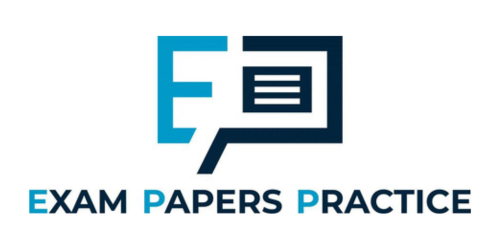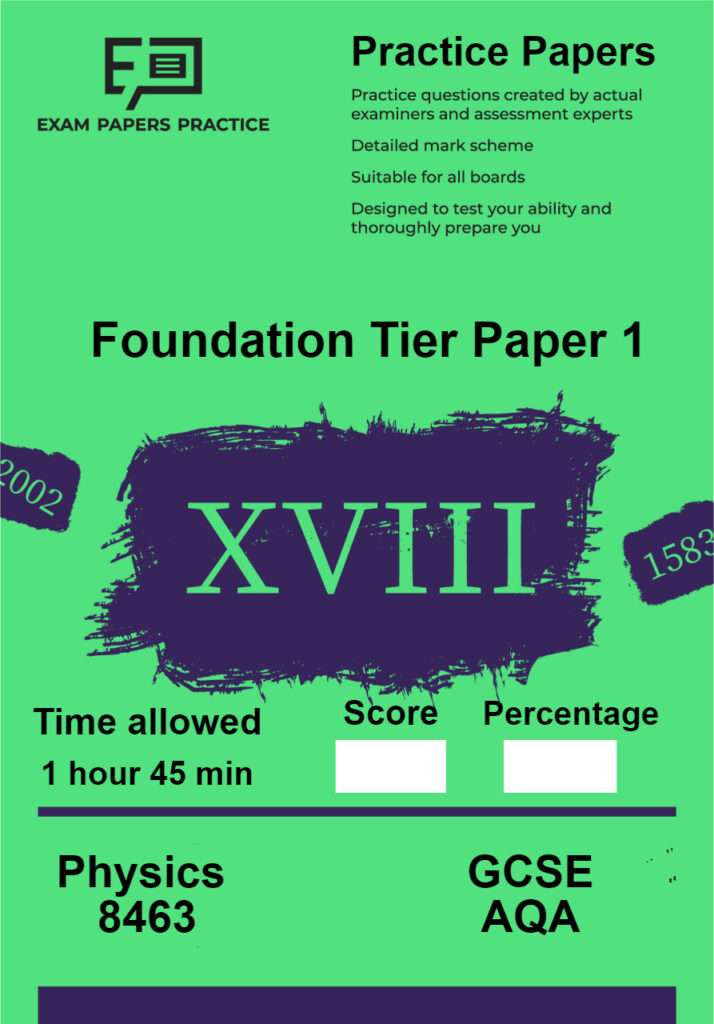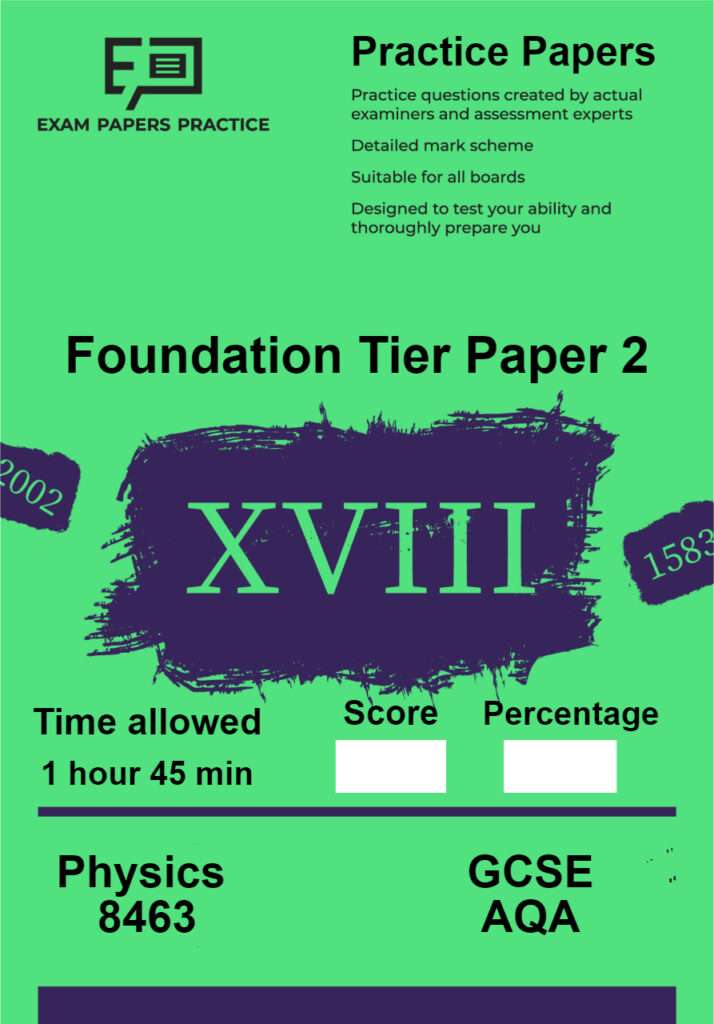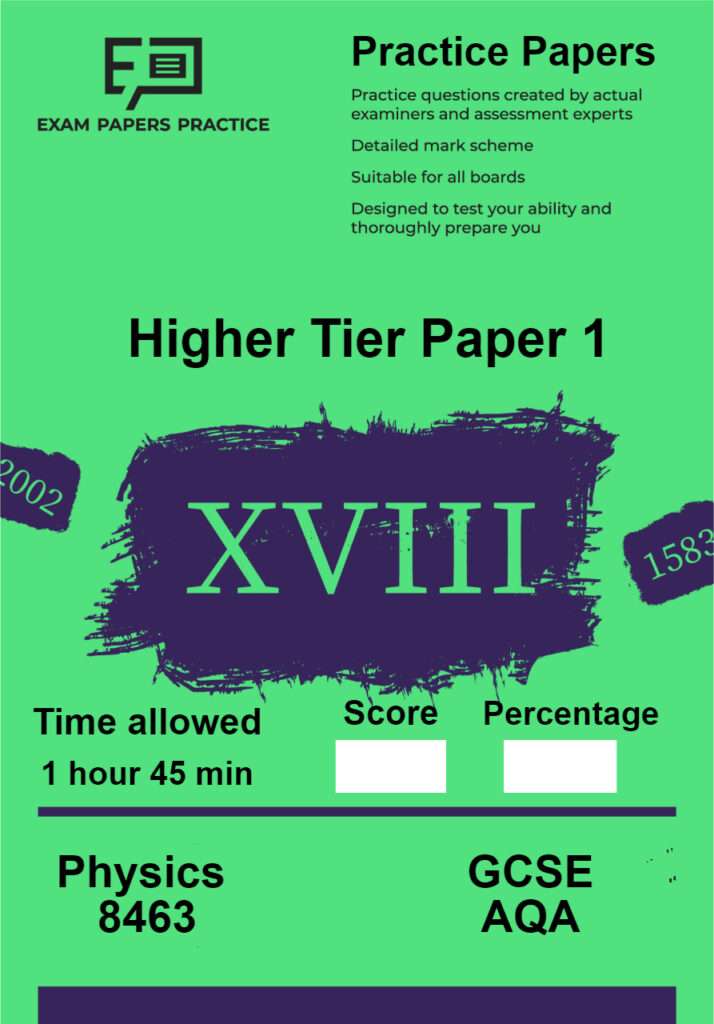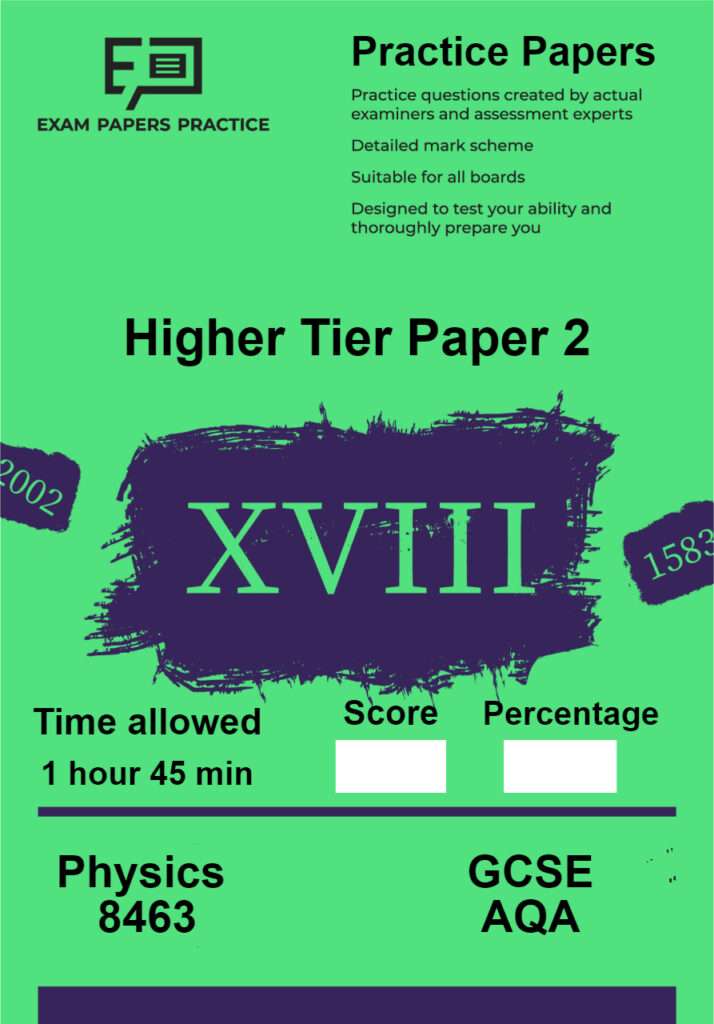AQA GCSE Physics (8463) Practice Papers: Your Guide to Scoring an A*
Getting top marks in AQA GCSE Physics (8463) might feel like a huge challenge—but it’s absolutely achievable with the right study techniques, mindset, and resources. Whether you’re aiming for an A* (Grade 8 or 9) or simply want to feel more confident in your science exams, the practice papers available at Exam Papers Practice can make a world of difference.
Here’s everything you need to know to achieve top marks in AQA GCSE Physics, along with tips for effective studying.
Topic Driven Practice Paper Resources
What is AQA GCSE Physics (8463)?
AQA GCSE Physics (8463) is a subject that covers key concepts in physics such as forces, energy, waves, electricity, magnetism, atomic structure, and space physics. It’s designed to test not only your knowledge of physical principles but also how well you apply them to real-world situations.
The exam is split into two papers:
Paper 1: Energy, electricity, particle model of matter, and atomic structure.
Paper 2: Forces, waves, magnetism and electromagnetism, and space physics.
Each paper includes multiple-choice questions, structured questions, and extended response questions.
Why Practice Papers Matter
Using AQA GCSE Physics (8463) practice papers from Exam Papers Practice is one of the most effective ways to prepare for the exam. Here’s why:
1. Familiarity with the Exam Format
Practice papers reflect the structure and style of real AQA exam papers. By completing these regularly, you’ll:
Know what types of questions to expect
Understand how to manage your time in the exam
Improve your confidence and reduce stress on the day of the test
2. Identify Weak Spots
When you practice under timed conditions, you can quickly spot the topics you struggle with. Maybe it’s equations in the electricity unit or understanding vectors in forces. Once you know, you can focus your revision on those areas.
3. Improve Your Exam Technique
It’s not just about knowing the right answer—it’s about expressing it the way AQA wants. Practicing full papers helps you:
Use proper scientific language
Show working clearly in calculations
Write concise and accurate long answers
Study Tips to Boost Your AQA GCSE Physics Grade
Now that you’ve got access to the best practice papers, here are some expert tips to help you make the most of them and your overall revision.
1. Create a Study Schedule
Break down your revision into small, manageable chunks. For example:
Monday: Energy topic revision + 1 energy topic paper
Tuesday: Review answers + go over incorrect questions
Wednesday: Electricity revision + test
Stick to your timetable and build consistency—it beats cramming every time.
2. Use Active Recall and Spaced Repetition
Don’t just read your notes—quiz yourself! Use flashcards or write out definitions and equations from memory. Come back to tricky concepts every few days to lock them in.
3. Practice Paper a Week Rule
Challenge yourself to complete one full AQA GCSE Physics (8463) practice paper each week under exam conditions. Track your score, review your mistakes, and aim to improve each time.
4. Understand the Mark Scheme
After every practice paper, check your answers against the AQA mark scheme (provided in all our resources at Exam Papers Practice). This helps you learn how marks are awarded and what examiners are really looking for.
5. Learn the Equations and Units
Make a cheat sheet of all required equations (like F=maF = maF=ma, V=IRV = IRV=IR, etc.) and practice using them. Physics has a lot of calculations, so mastering these will give you a big advantage.
6. Don’t Skip the Practical Questions
Paper 1 and 2 often contain questions based on required practicals. Use our revision resources to review these experiments and understand the underlying scientific principles.
Are You Having Trouble with Your Studies? Get the Help You Need Today
If you’re struggling with your studies and looking for extra support, why not consider hiring a tutor or enrolling in summer school or Easter revision services? Whether you’re aiming to boost your grades or better understand complex topics, targeted revision can make a big difference. Accessing the right resources is crucial, and there are multiple options available to help you succeed.
Why Consider a Tutor for Your Studies?
A personal tutor can provide tailored support based on your individual learning needs. Tutors offer one-on-one sessions that focus on the areas where you need the most improvement. Whether it’s mathematics, science, or language arts, a tutor can provide targeted strategies and techniques to ensure that you understand key concepts and are prepared for upcoming exams.
Summer School and Easter Revision Services: A Great Opportunity
Summer and Easter revision services are an excellent way to prepare for exams while still having time to relax. These sessions are structured to help you revisit your syllabus, revise key topics, and practice with exam papers. These services offer intensive study periods, which can be highly beneficial for students aiming to refresh their knowledge and boost confidence.
Accessing the Board Syllabus for Efficient Studying
Accessing your exam board’s syllabus is one of the most effective ways to stay on track during your revision. The syllabus provides a clear outline of the topics you need to cover and allows you to prioritize areas that require more attention.
The comprehensive AQA GCSE Physics (8463) Specification ensures that you are following the right path and studying the correct resource material.
Where to Find the Best Educational Services
For further support, you can check out services offered by our Sister Companies Lite Regal International College and Lite Regal Education, both of which provide expert tutors and revision resources. Whether you need a tutor for personalized lessons or are looking to join a revision group, these services have a wide range of options to fit your study needs.
Achieving an A* in AQA GCSE Physics (8463) is about being smart with your revision, practicing effectively, and using the right tools. With Exam Papers Practice, you’re not just reading information—you’re learning how to apply it the way the exam wants.
So start today: download your first practice paper, grab a notebook, and begin your journey to success. Your A* is waiting—you just need to reach for it!
